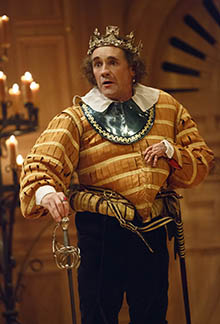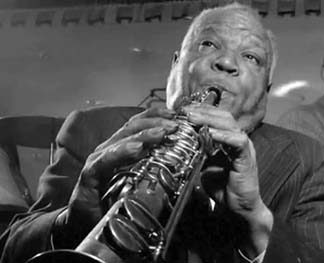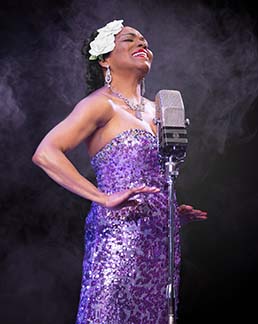Theater
If you haven‘t seen Mark Rylance glide across the floor in fast tiny steps which, if it isn‘t a dancer‘s couru, makes you think he is on wheels, you have missed the funniest bit of stage business I can readily recall.
The exceptional Rylance, playing Olivia in this all-male production of Shakespeare‘s comedy of mistaken identities, gives a bravura performance, petulantly regal and flirtatious, a lady truly overwhelmed by love. You will never see the show without remembering him in the role. Though you don‘t for a minute believe that Rylance is a real woman. The casting makes the play a bit hokey, but still a lot of fun.
Theater

Mark Rylance‘s portrayal of the malevolent Richard III is a complex and original psychological study. Let‘s take this beyond what was expected of power seekers in Elizabethan times, that they might be rapacious and without morals. (Plus ça change, as they say.) Shakespeare doesn‘t just assume the pathology of 15th-century English politics, but wonders what is wrong with a man who plots to kill everyone, including family members, that stand between him and the throne.
Uncategorized
There was Karen Oberlin, a favorite, and Cary Hoffman, who has joined my list of favorites. Some well-known, others who ought to be, they appeared –15 of them – at a performance of Urban Stages‘ “Winter Rhythms,” among the best deals around for cabaret and jazz lovers. The theme was Sinatra at the Movies.
It was the fifth year of a benefit to support Urban Stages‘ outreach to schools, libraries and seniors.
Theater
Jack O‘Brien‘s staging of “Macbeth” at Lincoln Center puts the emphasis on “stage.” The physical production is minimal and stunning, with high backdrop curtains painted with noble shields and lighting aimed like lasers at key figures or diffused to bathe actors in shadows. There is fine pageantry and music.
Unfortunately, Ethan Hawke, as the ruthless, power-hungry noble who seeks the throne of Scotland, forgets he is on a stage, where one needs presence, and not in the movies, where it‘s okay to be laid-back. Hawke speaks too low and too fast, and sometimes even mumbles. He appears timid, frightened, even distraught, with the demeanor of a drug addict.
Cabaret & Jazz

It‘s getting to be a lesser-kept secret, but twin brothers Peter and Will Anderson are back at 59E59 Street Theaters for a multimedia jazz band performance, this one called “Le Jazz Hot: How the French Saved Jazz.”
A mix of old video and terrific live playing by their quintet, it is devoted to the stories and sounds of some of America‘s great black jazz musicians who went to France beginning in the 1920s, because the French were a lot more hospitable to them than were Americans, including American cops. Some are famous, but others you might not know about.
Theater
Julie Taymor‘s extravagant sets and staging gloriously overwhelm this production. A billowing sheet the size of the stage is lowered, and the brilliant Kathryn Hunter, who plays a red-headed Puck, drops through a middle opening. Scampering woodland animals – deer and foxes – wear heads that made one think, “Lion King!”
Fairy Queen Titania (a charming Tina Benko) descends from the ceiling in white and glittery wings, complete with lights that make her truly ethereal. Candles flicker, jewels sparkle; there‘s never been a Fairy Queen who looked like this.
Theater
Harold Pinter‘s play of modern sexual mores shows men and women betraying each other with casual composure, as if they were discussing a love match at a tennis game instead of the love game in their lives.
The play discourses on the civilized trappings of personal infidelity. The triangle is a writer, his wife and the writer‘s literary agent. Three friends — members of the literary-artistic intelligentsia — engage in sexual unfaithfulness with such sang froid, that they ask after lovers’ spouses and children, and one has lunch with the friend he is cuckolding, while suggesting that any other behavior would be downright uncivilized.
Theater
Fiona Shaw is one of the grand actors of our time who could pull drama out of reading a phone directory. Her “Medea” at the Brooklyn Academy of Music in 2002 was at once elevating and chilling.
Her latest appearance at BAM marries the same artistry and fancy to tell a story about a mariner‘s shooting of an albatross and its awful effect on the boat and its crew. Her text is “The Rime of the Ancient Mariner” by the early 19th-century British poet Samuel Taylor Coleridge.
Theater
My ancestors have been in America since the early seventeenth century. And for the first two hundred and forty-four years we never had a problem finding a job, he says with pointed irony. But since 1863 it’s been hell.
So begins August Wilson‘s elegant, tough, poetic memoir of his life in America. It is smartly created by Ruben Santiago-Hudson, who knew Wilson and acted in many of his plays.
Theater
A young woman (Janine Thériault) is in her artist‘s studio lobbing red paint over black and white figures. A projected figure tells her, “It‘s obscene, you love everything morbid.” It turn out it‘s her sister (Anne-Marie Cadieux). The comment turns out to be quite perceptive.
This projection/play by the Canadians Michel Lemieux and Victor Pilon is fascinating as an artistic piece, gorgeous as staging and projection. Unfortunately, the plot and text are rather silly. Perhaps it should have been done as a dance theater piece, without voices.
Theater
Think of the fall as the prelude to the end of life, the difficult bumbling interval preceding finality and death. It‘s a time that presents more misery than joy in Samuel Beckett‘s “All That Fall,” a 1957 BBC radio play being staged with exquisite tenderness by Trevor Nunn at 59E59 Theater. But there‘s also a quirky and bizarre sense that makes you marvel for a moment at peoples‘ ability to hang on and assert themselves even as their physical beings are failing. “Fall” here is the verb.
This production is anchored in brilliant performances by Eileen Atkins and Michael Gambon, among Britain‘s best actors, as the frail married couple who retain just enough energy to flail and thrash at each other. Old life is passing, new life is budding, or is it nipped in the bud?
Theater
This is a play for which the word “riveting” was invented. It’s got action, history and ideas, stimulating on all accounts. It‘s the early 1980s in Mississippi. Two low-life whites, whose prime amusements are drink and drugs, have raped a 10-year-old black girl they came upon carrying groceries on a lonely rural road. They leave her for dead. But in the hospital, she identifies them, and they are arrested.
John Grisham graduated from the University of Mississippi Law School in 1983 and practiced criminal law as a trial lawyer for about a decade. The play, based on his 1989 novel, was inspired when he was at a courthouse where a 12-year-old told a jury how she had been beaten and raped.
Theater
Terrence Rattigan‘s “The Winslow Boy” is a British period piece that is still eminently satisfying. Written in 1946 and set in 1912 to 14, it is based on a true story. A father in an upper class household – at least upper class enough to afford a full-time servant – gets a letter informing him that his son has been accused of purloining a five-pound postal order from another boy at the Royal Naval College. He believes the son that the accusation is unjust and must immediately make a moral choice that could risk the family‘s financial status.
Theater
Cherry Jones is acknowledged as one of the best actresses on the American stage today. I first saw her in 1998 in “Pride‘s Crossing” at Lincoln Center where she played a woman from childhood to dotage with no change in make-up, making you believe the age of the characters with the expressions and twists of her face and the angles and rhythms of her body and walk.
She dominates this play in a portrayal of a character who she makes at once sympathetic, annoying and absurd.
Cabaret & Jazz, Theater

Dee Dee Bridgewater is an accomplished jazz singer who recreates Billie Holliday so expertly you‘d swear she had channeled her. Musically. But the play written and directed by Stephen Stahl is so hokey and histrionic that it gets in the way of the artistry. Stahl has been working on this production and trying to bring it to New York for years, decades. But perhaps his emotional connection overwhelmed his artistic sense.
The play shows Billie in London where her manager (a too-laid-back David Ayers) is trying to steer her sober as she rehearses with a band for a bet-the-house performance to salvage her reputation so she can return to work in New York.
Theater
I think the Elevator Repair Service could dramatize the telephone book.
I went to its performance of “Arguendo” — it‘s the legal term for the sake of argument – with a soupçon of curiosity leavened with “ok, show me.” After all, the play text was the transcript of the Supreme Court arguments in the 1991 case of Barnes v. Glen Theatre. It was a challenge to the Indiana law that banned nude dancing in clubs. The law said dancers had to wear pasties and G-strings.
Theater
Horton Foote‘s “The Old Friends” reminds one of a Tennessee Williams play or a Faulkner novel. Director Michael Wilson in fact is a Williams scholar. Wilson knows how to direct Foote‘s dysfunctional Southern family yarn to make it engrossing and keep it from descending into soap opera.
Theater
This 1897 play about marriage and the relations between the sexes is a fluffy confection. It‘s part of a group called the “Pleasant Plays.” It skewers male chauvinism, social snobbery and even rigid feminist ideology which falls before true love.
Theater
Gripping, disturbing, unsettling, this picture of Robert Mugabe, the despotic president of Zimbabwe, depicts a psychopath who is haunted by the spirit of a man he killed, a fellow fighter in the armed movement of the 1970s to oust the white minority that ruled Rhodesia.
The play was written by British writer Fraser Grace, who was inspired by newspaper accounts that Mugabe, depressed, had sought treatment from a white psychiatrist.
Theater
The musical Annie is based on the comic strip by Harold Gray, a reactionary who opposed unions, welfare and Franklin D. Roosevelt. But book writer Thomas Meehan has turned a right-wing cartoon into a pro-New Deal musical where FDR has a cameo role. Gray would be turning in his grave.
Travel

I saw jazz pianist Ramon Valle at the A-Trane in Berlin. He bills himself as “The Other Face of Cuban Jazz.” He and the members of his trio are Cubans, but they don’t play with the Latin rhythm we might expect. This Cuban jazz is modern jazz performed by Cubans.
Theater
It‘s a smidgeon corny, but I found this play about the rabbi-rock singer Shlomo Carlebach (Eric Anders) and the jazz singer Nina Simone (Amber Iman) rather charming. And very entertaining.
The story takes Carlebach from Nazi-occupied Vienna, from which he escaped with his chief rabbi father, but not before the young Shlomo saw people he knew murdered or sent to concentration camps.
Theater
The defining moment of “Forever Tango” is the opening production number that takes place in a bordello. The men wear pin stripes, black cravats, Borsalino hats and menacing looks, and the women, in slinky gowns, move among them, sometimes passing bills to the pimp. The language is tango, as the men and women interact with the circles and twists and back kicks that define this dance.
Blog
Aug 28, 2013 — Since it‘s the 50th anniversary, I‘m writing a brief remembrance about the March on Washington. I‘d been in Jackson, Mississippi, for a year, editing the “Mississippi Free Press,” a civil rights weekly. In August 1963, I took a bus home to New York, stopping at the March, which friends of mine had helped organize.
Theater
In 1960, I was among a handful of college students who volunteered at the 125th Street offices of “The Committee to Defend Martin Luther King and the Struggle for Freedom in the South.” The sit-ins had started, southern sheriffs were brutalizing protesters, and King had been arrested and would be released on the intervention of President Kennedy. The committee had been organized in Harry Belafonte’s New York apartment and was run by Bayard Rustin, a pacifist and King‘s leading strategist. One of the “older” activist volunteers was Michael Harrington, 33, a writer who used his pen to help the campaign. Rustin was also the lead organizer of the 1963 March on Washington, which I attended.





